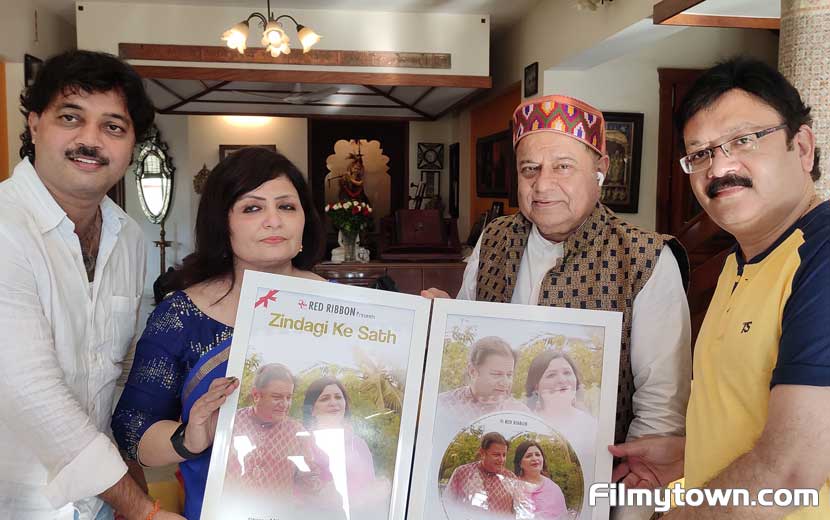“Todays launch is special for me as the Ghazal’s lyrics are so beautifully penned. Nafrat kisi ke saath, Mohabbat Kisi ke saath, Yeh Kashmakash bhi Khatam hui zindagi ke saath,” announced Anup Jalota who undoubtedly is India’s gem among the current Bhajan and Ghazal singers at a private meeting with the Filmy Town press on the occasion of launch of his latest Ghazal – ZINDAGI KE SATH.
Debutante Deepa Joshi who has been a known personality as a well known voice over artist in AIR and Doordarshan makes a lasting impression in her duet with Anup Jalota. Deepa has been a presenter and compere of several programmes on All India Radio and DD. Thrilled at bagging the opportunity of singing a duet with Anup Jalota, she made a significant remark, “What I find so compelling about Zindagi ke Sath is that at a significant point it mentions about experiencing the pain and agony of falling in love which implies that – Kuch Paana Ho to Kuch Khona Padta hai.”
FilmyTown editor Paresh B. Mehta speaks to Bhajan Samrat Anup Jalota:
What do you personally feel about ZINDAGI KE SATH?
I find it more interesting to sing when there is such wonderful poetry that made me soulfully involved in the composing process. What makes the ghazal Zindagi ke Sath more captivating is Deepa Joshi’s voice. The ghazal is released by Red Ribbon Company.
What is your observation of Deepaji’s contribution to this ghazal?
Every singer has his or her own charm and melody. Let me put it this way that certain songs suit only particular singers. The best example is that of Ashaji and Lataji – both of them are masters in their own individual melodies and colours.
Coming to Deepa Joshi’s charming voice in this ghazal, I would honestly admit that not many singers could have pulled it so soulfully, emotionally and matched the depths of its lyrics like Deepaji has done.
Which section of our people will find this ghazal appealing?
As the ghazal Zindagi ke Sath is so simply worded, it would surely connect to the younger generation. Most of the ghazals have quite a few difficult Urdu words, but Zindagi ke Sath narrates the journey of one’s ups and downs in simple Hindi words.
What is the significance of citing 2 contrasting virtues – Nafrat and Mohabbat? (Which means hate and love)
We would find the Kauravas and Pandavas everywhere, likewise Kansa and Krishna and even Ram and Ravan. It depends on the individual who he choses. It is for the first time that such beautiful philosophy has been conveyed in my Ghazal in the most simplistic form.






